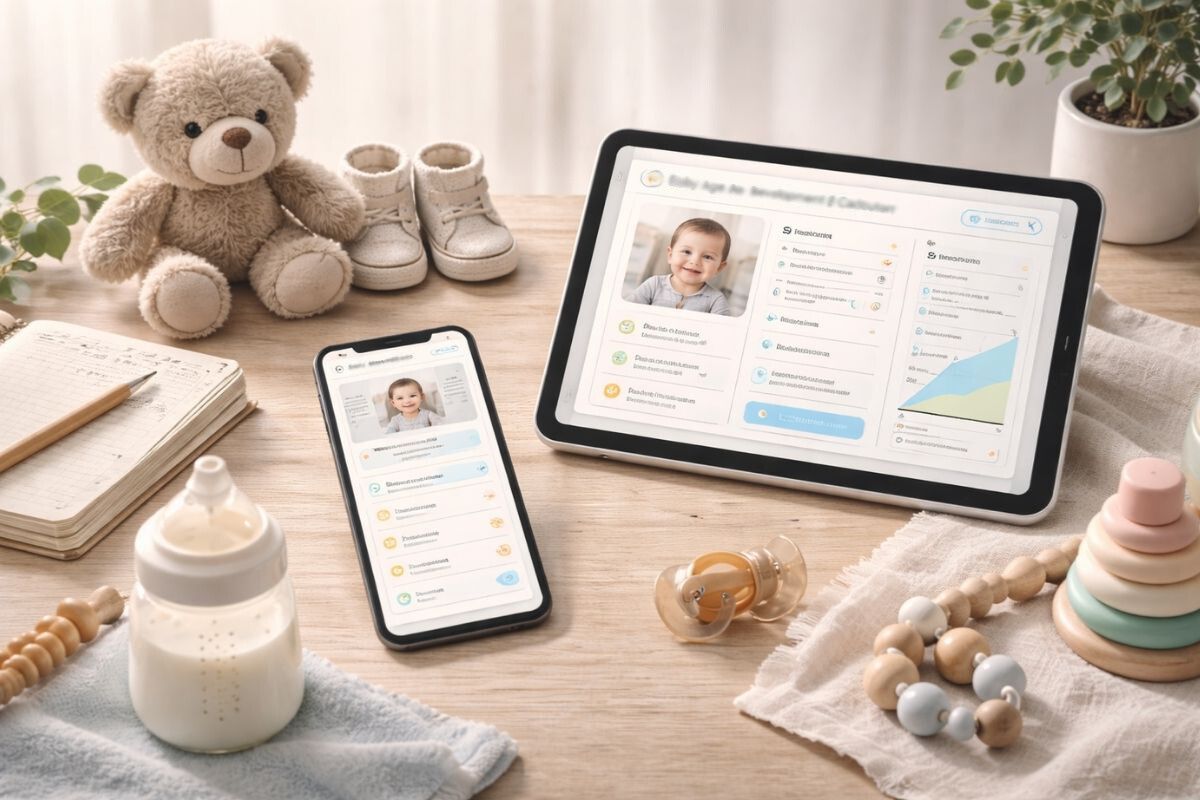The first years with a baby feel fast and tender at the same time. Days blur together. Growth feels sudden. One week a sleeper fits, the next it does not. Parents want reassurance. They want clarity. They want tools that respect how children grow as individuals. Baby calculators have quietly […]
Read More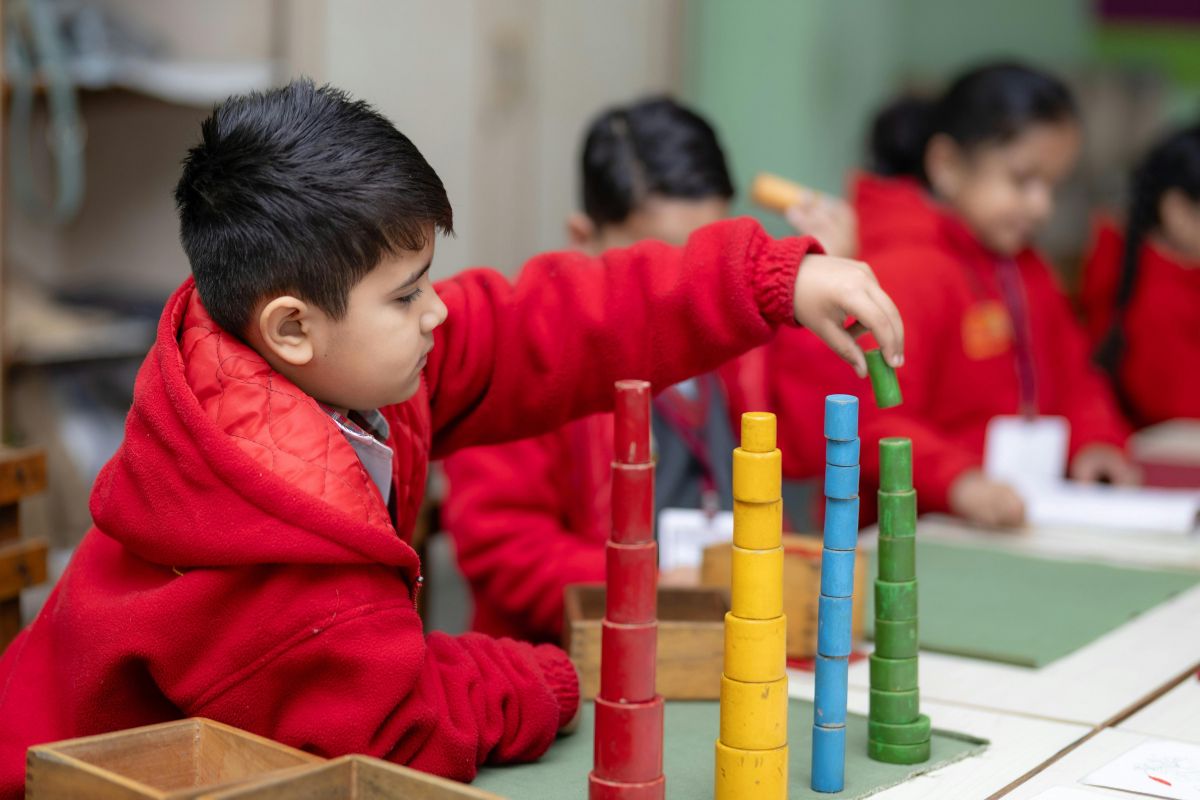
Self-Directed Learning in Montessori
Children are naturally curious. From a very young age, they show a strong desire to investigate, build, and ask questions. Montessori education recognizes this natural drive and creates an environment where children can take charge of their own learning. This idea, called self-directed learning, lies at the heart of the […]
Read More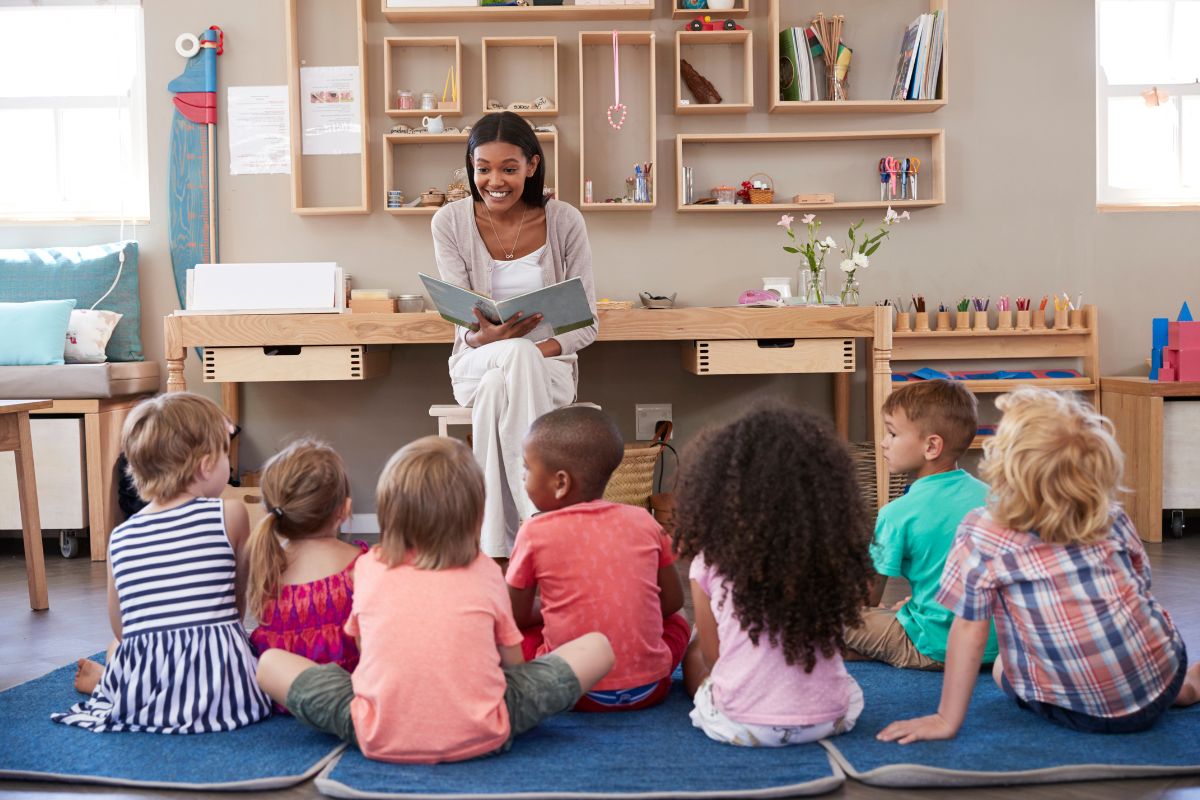
Montessori and Individual Respect
Every child carries within them a natural desire to learn, explore, and grow. In Montessori education, the idea that each child deserves to be treated as a unique person is not just a philosophy, but the foundation of every classroom. Respecting individuality means seeing children as capable, valuing their choices, […]
Read More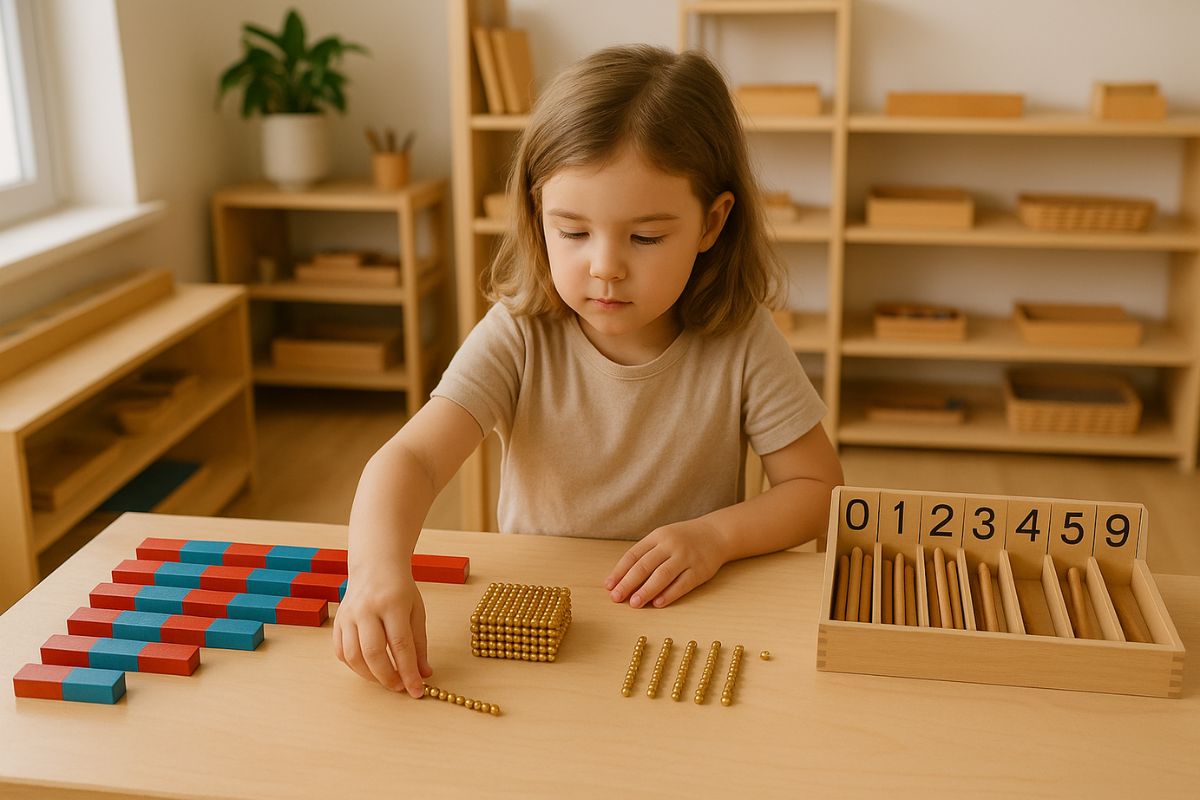
Montessori Math with Learning Materials
Math is often seen as numbers on a page, but in Montessori classrooms, it looks and feels different. Instead of abstract problems right away, children begin with hands-on materials that make math come alive. They build, count, touch, and move their way into understanding. This method respects how children naturally […]
Read More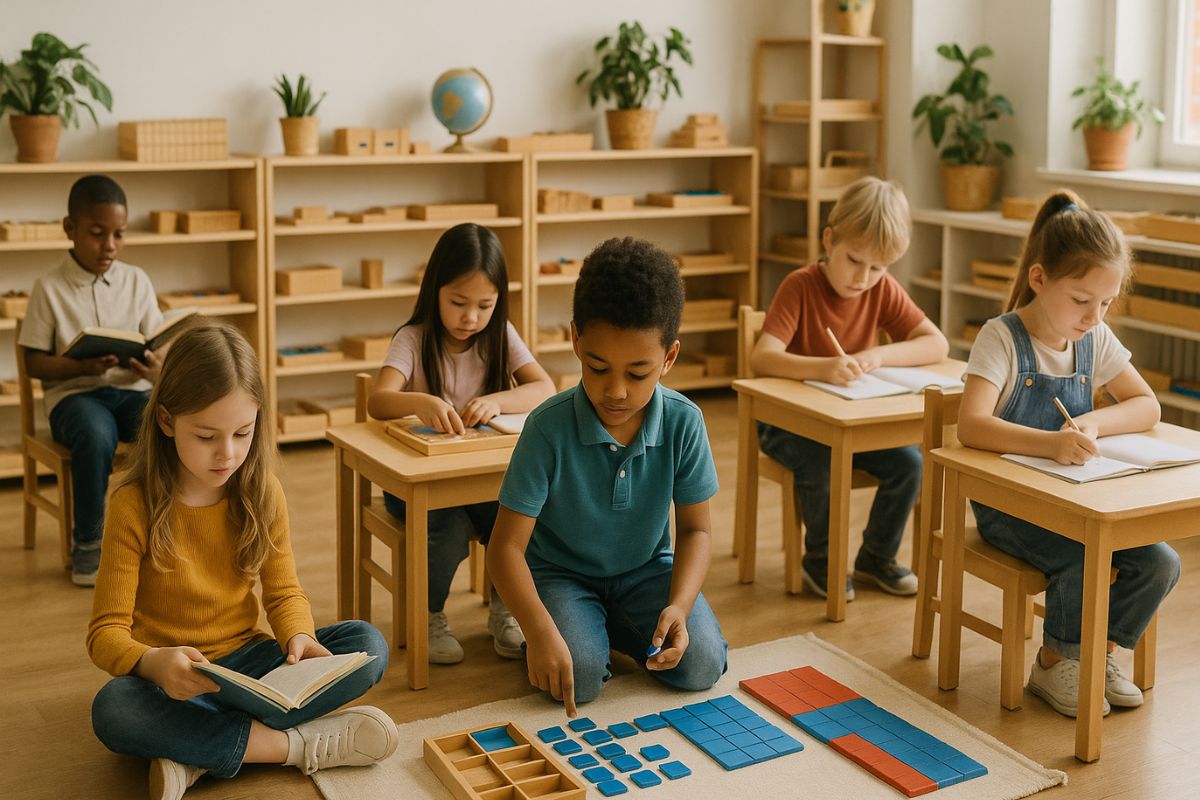
Academic Growth in Montessori Students
Academic success means more than just test scores. It’s about deep understanding, the ability to think clearly, and the confidence to keep learning. For Montessori students, academic growth looks different than in traditional classrooms. It happens through hands-on work, personal interest, and a thoughtful balance of freedom and structure. These […]
Read MoreMontessori and Individual Learning Pace
Every child learns in their own way and on their own timeline. In Montessori classrooms, this idea is not just accepted—it’s celebrated. The approach is designed to support the natural rhythm of each child’s development. Instead of pushing everyone through the same material at the same speed, Montessori education offers […]
Read More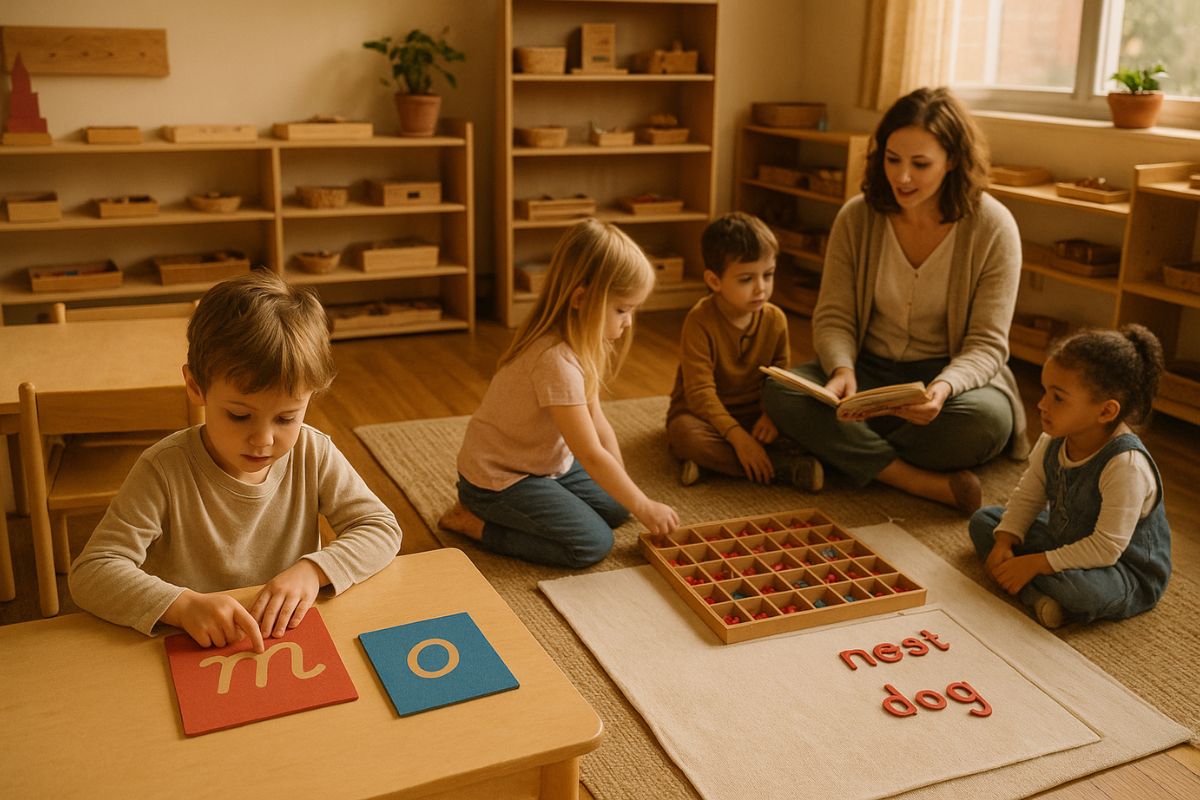
How Montessori Develops Language Skills
Language is more than just a way to speak. It shapes how children think, connect, and understand the world around them. For parents and educators, helping children build strong language skills is one of the most meaningful things they can do. In Montessori classrooms, this process starts early and follows […]
Read More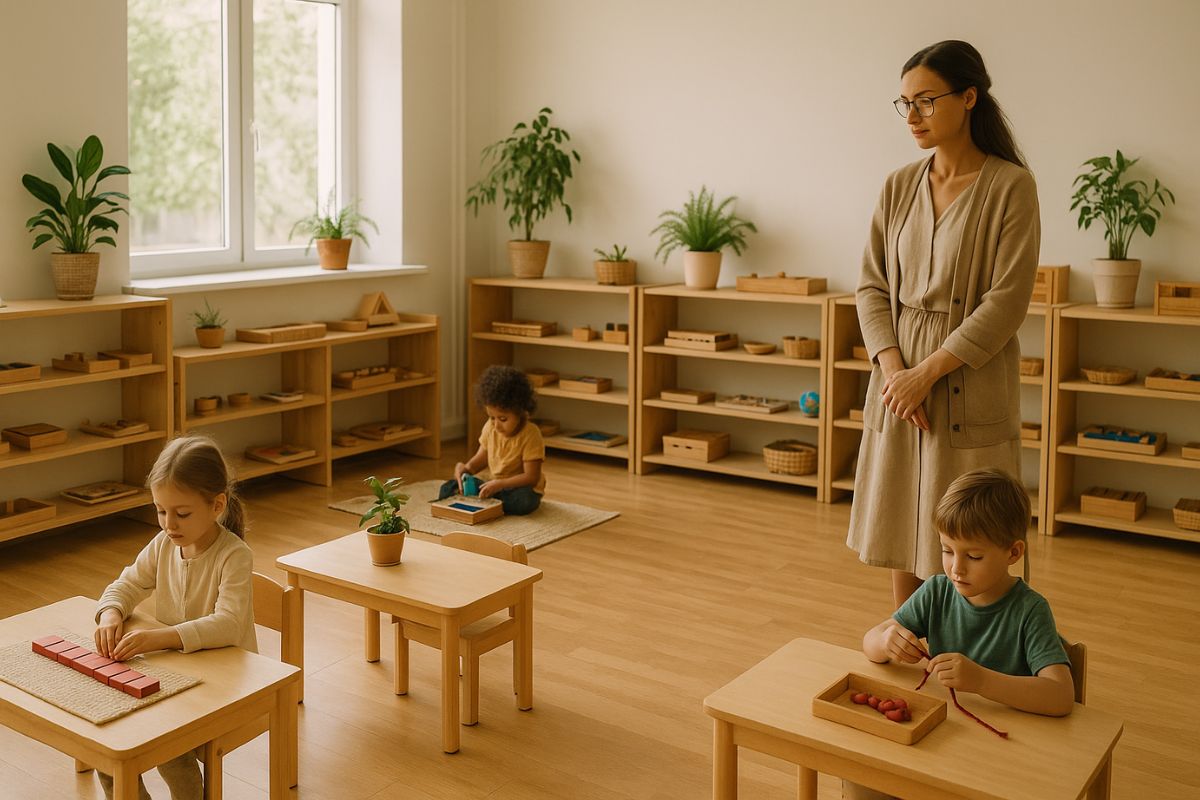
Scientific Insights on the Prepared Environment
Children grow best in spaces designed with purpose. In Montessori education, the concept of the prepared environment isn’t just a theory—it’s a central part of how children learn and thrive. But what does science say about it? How does current research support the careful design of learning spaces that meet […]
Read More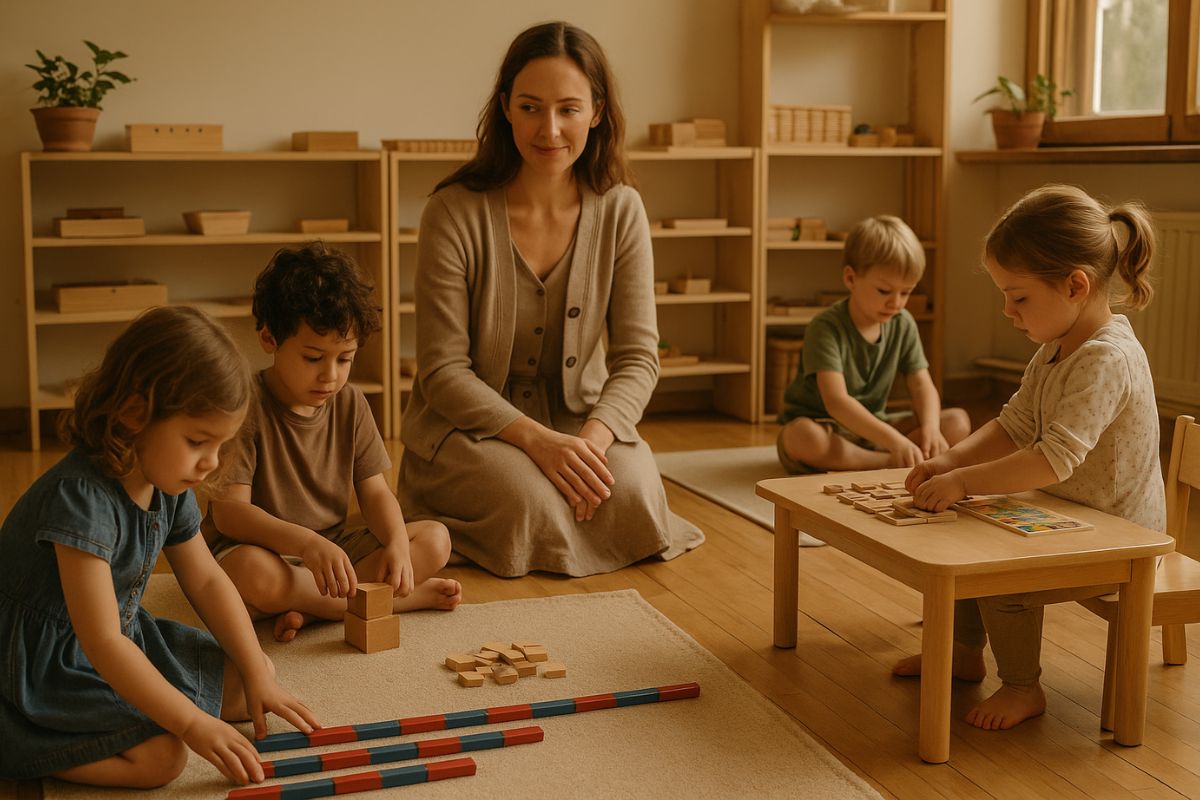
Encouraging Problem Solving in Montessori
Children are naturally curious, and Montessori education is built to nurture that curiosity. Instead of giving them answers, it gives them the space to think. In a Montessori classroom, problem solving is more than a skill—it’s part of daily life. And for many parents and educators, it’s one of the […]
Read More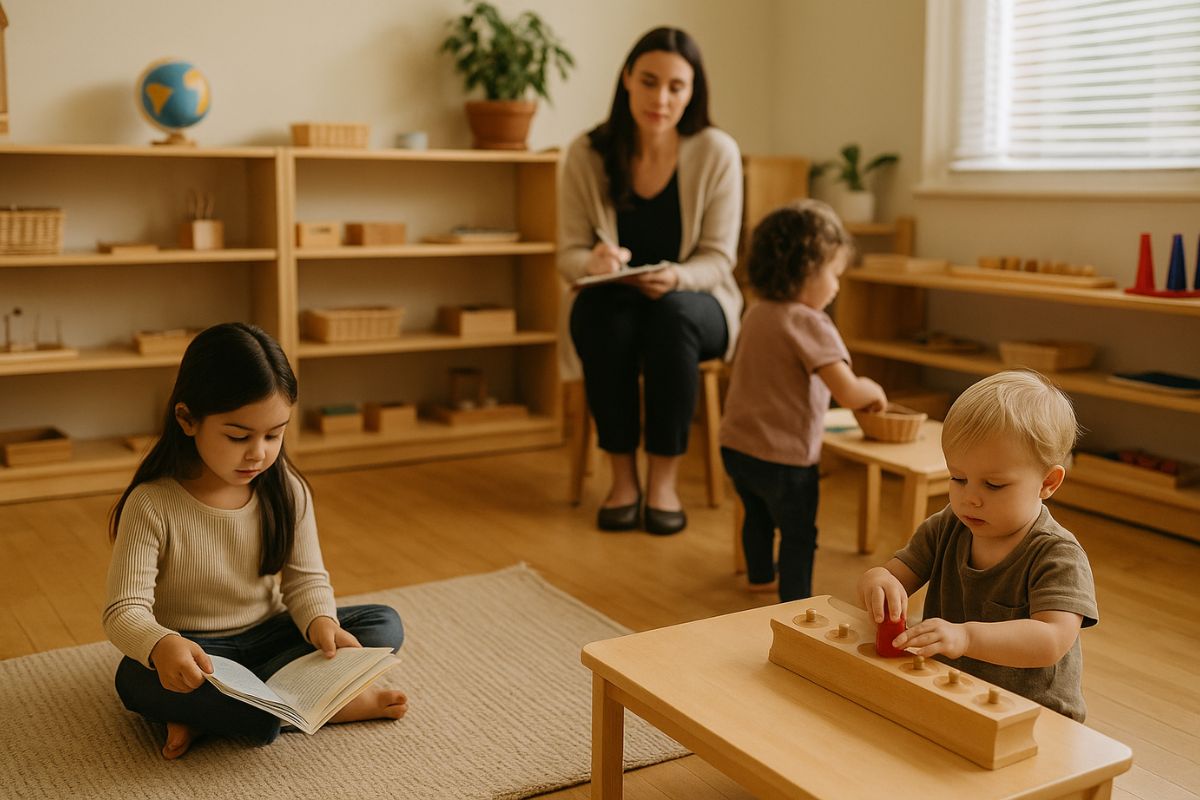
The Role of Observation in Montessori Classrooms
Every Montessori classroom offers a peaceful, prepared environment where children can grow in their own time. But behind this quiet rhythm is a careful, intentional practice—observation. It’s one of the most powerful tools a Montessori guide uses, yet it often goes unseen by those unfamiliar with the approach. For children […]
Read More